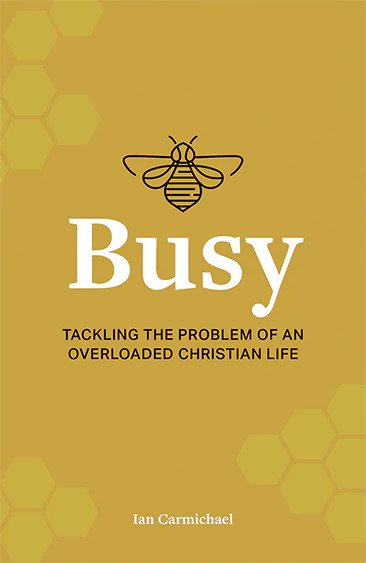Busyness reminds me of building dams.
Many of my favourite childhood memories are of holidaying alongside the beautiful Liffey River in Tasmania. Each Christmas we would make it our mission to dam the river with a wall of stones, creating a tranquil swimming pool upstream.
We never succeeded. No matter how long we laboured, or how we manipulated the stones, the river continued to flow through the cracks in our work. We could never totally stop the river, and most years a little rain would soon wash away any progress we had made.
The river unrelenting, the work unending—such is the busyness of life.
Except unlike my childhood joys of dam building, the general busyness of life feels a little more frustrating. We’re not manipulating stones, but real responsibilities. And the cracks aren’t just the river escaping downstream; time and opportunities are slipping away from us.
The river unrelenting, the work unending—such is the busyness of life.
Whether you have an incredibly high or relatively low capacity, this is the reality for most of us. We’re busy, rest is fleeting, life doesn’t slow down—and on the surface being a Christian doesn’t really help. In fact I think many of us would find our roles in church and the Christian community only add to our busyness.
So the question probably isn’t, are you busy, but how are you busy?
Enter Ian Carmiachel’s Busy: Tackling the Problem of the Overloaded Christian Life.
A Practical Perspective
From 7 Habits of a Highly Effective People to Spark Joy, one of the things our society always makes time for is content that promises more time (I’m not ashamed to admit I have both of these on my shelf).

Busy: Tackling the problem of an overloaded Christian life
Ian Carmichael
Busy: Tackling the problem of an overloaded Christian life
Ian Carmichael
Feeling overworked? Too much on your plate? Hoping there must be a better way? Then surely you need greater efficiency, better time management techniques, the right apps, the resolve to simply push through, guidance from a guru or influencer …
But what if the change we really crave is found somewhere entirely different?
As we make our way in this hectic, confused culture, our greatest need is the practical, life-changing wisdom that only our Creator can provide. We need to pause and look to God—who he is, who he has made us to be, and how the good news of Jesus can genuinely reorder our daily lives for the better.
However, unlike the plethora of books that fill this space, Carmichael is refreshingly humble in his claims. You won’t be sold new techniques and strategies, and he doesn’t pull out a bucket with rocks, pebbles, and sand—promising that if you order everything well it will all fit neatly. Rather he says, “I want to avoid magic bullets and instead look with you about what God has to say in the Bible about busyness.”
Reading the book feels like meeting a helpful friend. Carmichael is down to earth, conversational, and personable, guiding us through a biblical perspective on the world we live in, the God who made it, and our busyness. The lack of “magic bullets” does mean it takes nine chapters for the book to start feeling more practical, but that’s okay. The goal is a proper perspective, not just a bunch of strategies. Carmichael is honest about this—no amount of management techniques or extra effort will solve our busyness on their own.
No amount of management techniques or extra effort will solve our busyness on their own.
A large chunk of the content is given to understanding the why and how of God’s own busyness in moving from Creation to New Creation. In light of this metanarrative Carmichael argues being busy isn’t wrong—it’s part of being made in God’s image. What’s key is where our busyness is directed. Just as God works toward the New Creation, the main focus of our busyness should be to guide as many people as possible to the world to come, encouraging them to maturity in Christ while we wait.
In today’s congested arena of decision-making this faithful reminder of God’s grand plan and priorities is timely. It’s challenging too. Having established this foundation Carmichael isn’t light on applying this truth to our spheres of life, and nor does he ignore our need for rest—placing regular reminders throughout.
I am still busy, but I have been encouraged to think through my busyness well. To direct my life according to the purposes of God, knowing that he will use this labour to build his kingdom and glorify Jesus.
The Added Extras
Alongside the clear and winsome writing here are several aspects I found particularly helpful.
- The reflection questions. The book could be read in one or two sittings, but I wouldn’t recommend it. I found the questions at the end of each chapter thought-provoking in applying each section—so reading one or two chapters at a time will make the most of these. Excellent chapter summaries made this reflection process even easier.
- The relationship audit at the conclusion of chapter 9. This process really consolidates the thinking of the book and brings it to bear on your life and relationships. It feels a bit mechanical using lists and tables to think through your various relationships, but working through this well will be helpful not just for you but also those you’re seeking to love and serve better.
- The appendices. Here Carmichael helpfully digs deeper into the contexts of paid employment, church, and family life. These are common and significant spheres of our life, and areas that perhaps contribute the greatest to our busyness. Here Carmichael bridges the perceived gap between God’s busyness and your potential day-to-day role as a worker, church member, spouse, parent, sibling, or child.
- The footnotes and recommended reading. The book isn’t one to labour a point, so it’s not unusual to reach the end of a chapter and feel like there is more to be said. I found that Carmichael was generally aware of this, and recommendations on further reading frequently pop up in the footnotes (along with helpful clarifications and occasional humorous comments). This brevity was particularly true in the first few chapters that discuss a theology of creation—the application of rest and leisure was limited—so if this is something you haven’t looked at before it might be worth sourcing a more extensive treatment of this.












